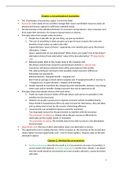Notes de cours
Class notes Managerial Economics A all chapters
- Cours
- HBA43C
- Établissement
- Katholieke Universiteit Leuven (KU Leuven)
Class notes of the course of managerial economics A of bachelor of business administration in KU Leuven.
[Montrer plus]



